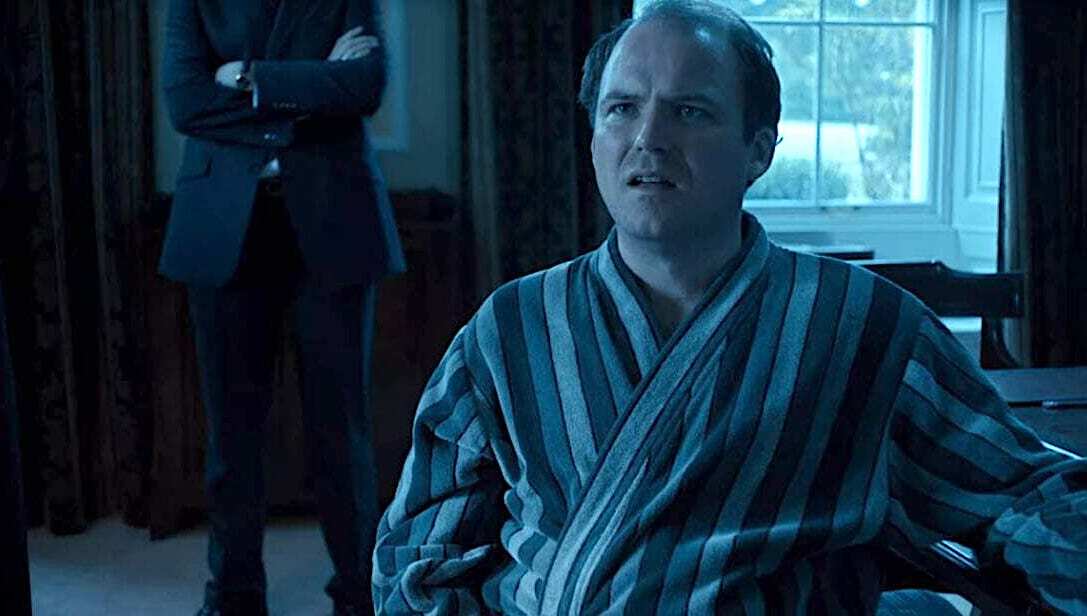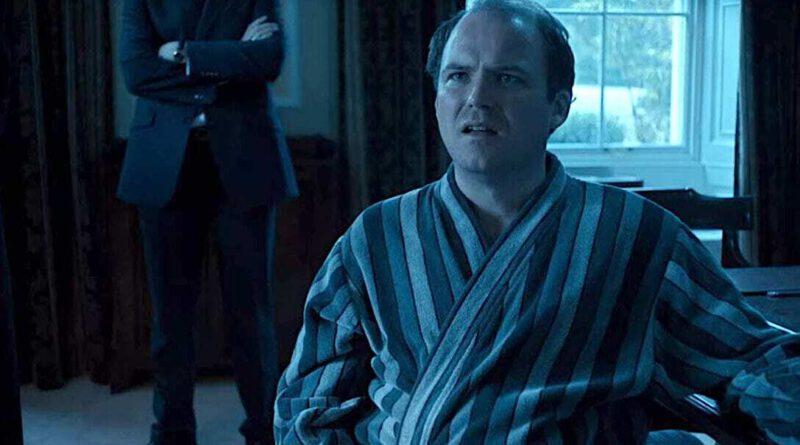The ‘National Anthem’ episode of ‘Black Mirror’ aged well

After credits roll on “Demon 79,” the kickass final episode of Black Mirror Season 6 (and my new personal favorite), Streamberry Netflix may automatically return you to the page for Black Mirror Season 1, episode 1. With any other show, this common and curious UI choice might afford a moment of nostalgia: aww, see how far we’ve come from that stilted pilot!
But this is not any other show. This is Black Mirror. And any reminder of Season 1 episode 1, also known as “The National Anthem”, is a reminder of either a) a divisive political satire that almost made you quit on Black Mirror before you even started, or b) a modern masterpiece of taut writing that gazed into the abyss of our social media souls years before it gazed right back at us.
Count me in the second camp. Indeed, count me among those who saw something so terrifying in that abyss that I declined to rewatch it. From hours after Charlie Brooker’s first episode of Black Mirror dropped on Netflix in 2015 until…well, hours before this writing, I dared not revisit Prime Minister Michael Callow’s (Rory Kinnear) terrible, horrible, no good, very bad day. I didn’t need to; the entire horrifying story has been long burned on the inside of my retinas.
That’s a recommendation, by the way — it may not be my favorite Black Mirror, but “The National Anthem” is still the essential Black Mirror. Six seasons later, the show has never hit a closer bullseye to what it’s all been trying to say. It would never again be as shocking, as pure punk as its debut episode. There was greater depravity in the cause of satire, perhaps, but it was never this earned. (Well, not until “Demon 79,” perhaps.)
And if you skipped it, or haven’t started Black Mirror yet, be off with you and do so while the rest of us talk about whether it holds up. Because here be spoilers, and it is better that you remain as unspoiled about it as possible. Just watch the thing.
Callow vs. Trump
Now, the rest of you might be thinking: are you sure it holds up? The whole thing with Callow and the princess and the pig, the way the story builds its inexorable nightmare via social media, was all very shocking and of-the-moment satirical when it first aired on Channel 4 in the UK in 2011. “The National Anthem” still had the power to shock when it dropped on Netflix four years later, even after the revelation that Prime Minister David Cameron allegedly did to the head of a dead pig, at a party in college, what Callow did to a live one.
But then came 2016. Now, we’re stuck in the era of Brexit, Boris Johnson, COVID, the insurrection, and Elon Musk’s broken Twitter where hatemongers and antivaxxers rule the roost.
Next to all the inanity, outrage, and gaslighting perpetrated on social media today, maybe the very concept of a political leader who would wish not to embarrass himself for an hour on national TV is now quaint. Would Trump turn down the opportunity to make us all watch, on every terrestrial and satellite channel, while he saves a princess and sticks it to liberal animal rights activists at the same time? As for the illegal act, he’d simply deny it happened after the fact, constantly, in all-caps posts. Fakin’ bacon news!
The Prime Minister’s wife
Still, from the moment “The National Anthem” starts, the modern world it portrays is still recognizably ours. In the episode, the initial YouTube viewership for Princess Susannah’s (Lydia Wilson) hostage video seems small, but it soon skyrockets into the millions. There’s no way to keep the genie of digital media in the bottle. Networks today might not hold out for an hour or so on reporting news that filled social media; they’d certainly use the same quickie online polls to gauge shifts in public sentiment that become self-reinforcing.
And sure, early 2010s Prime Minister Michael Callow doesn’t act anything like late 2010s President Donald Trump. Or does he?
Because here’s what becomes more clear on a rewatch: Callow needlessly alienates his staff with furious outbursts. And crucially, he ignores his wife. Jane Callow (Anna Wilson-Jones) calls her husband before and after the pig incident. He doesn’t pick up either time. Not only did Callow’s family deserve to be let in on his dignity-destroying decision to help the princess, Jane could have been a lifeline. There’s an alternate “National Anthem” where she helps the PM wrest control of the narrative by standing at his side and speaking out at a press conference. Why didn’t Callow think of that? No wonder Jane pulls away from him in the final scene a year later.
Callow is still a victim of circumstance, to be sure. The twin Leviathans of everything’s-a-joke social media and save-our-princess reality-show culture come for him that day. I still shudder at the moment one of his police guards ushers Callow into the room with the pig, when he hesitates, with a subtle wave of a gun that briefly turns guard into captor. And that’s just one of many subtle touches in a tight 45-minute episode that has aged like fine nightmare wine.
But Callow is also an opportunist who saw what he would get out of the sickening situation: increased poll numbers, out of sympathy. The invisible hand of the social media mob can reward as well as punish, if you know how to play its game.
And that story, the story of leaders who cynically take advantage of our brave new digital media world, is only just beginning. Even Black Mirror doesn’t know where it will end.
How to watch: All six seasons of Black Mirror are now streaming on Netflix.
